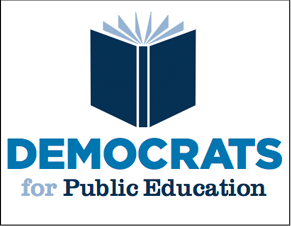January 7, 2015. 4:00 AM :: As a three-term Colorado governor, Roy Romer, a Democrat, had to deal with a combative Republican majority in his state Legislature. He later headed his party's fractious national committee.
But nothing was as difficult, he said, as running the Los Angeles Unified School District.
"Educating kids in a large urban city is difficult by default," said Romer, who headed L.A. Unified for six years. "You have a whole lot of social and economic pressures. … Los Angeles is especially tough because it's so large, so diverse."
And so political, he said.
In the eight years since Romer left, the school system has changed top leaders four times, including the October departure of John Deasy, who left under pressure.
The nation's second-largest school system now finds itself at a crossroads. Does the system go with a leader from the inside who knows the system and its players? Or does it go with an outsider who would be charged with making rapid progress and difficult decisions while working to understand a byzantine bureaucracy?
For decades, leading L.A. Unified has involved managing factions vying for leverage, including the teachers union, administrators and civic leaders. The job has become further complicated by competing visions of the best way to improve schools — a debate that has raged nationwide.
"I don't know who's going to take Los Angeles," former New York City schools Chancellor Joel Klein said. "I'm not sure they're going to want someone who's regarded as an aggressive reformer and people who are aggressive reformers may be reluctant."
Klein is among the civic and corporate elite who praise leaders such as Deasy, a veteran superintendent who arrived from a senior post at the Bill & Melinda Gates Foundation with a "reform" mantra for rapid change. The former Los Angeles superintendent favored forceful strategies, including replacing the faculty of schools with persistently low test results and using students' scores in teacher evaluations.
Some of these superintendents have had limited tenures; most have faced pushback from employee unions and community activists. Los Angeles superintendents have been undone for a variety of reasons.
Former Supt. Ruben Zacarias, for example, was pushed out because he was widely regarded as an insider who was unwilling or unable to challenge colleagues with whom he spent his entire career. Later, outsider David Brewer, a retired admiral, pledged to shake things up. But he never mastered the district's complexities and politics, in the view of senior district officials and civic leaders.
When Deasy left, former Supt. Ramon C. Cortines, 82, returned. He said he is willing to remain until a replacement is found; a search is unlikely to start before the end of the school year.
By then, elections for four of seven board seats will have concluded. A new board majority will have to agree on whom it wants and what it wants. That dynamic, however, could change all over again in election cycles that occur every two years.
"A superintendent is a political appointee. That's all he really is," said board member George McKenna, who served as superintendent in Inglewood Unified for six years. "The board picks him — that is a political decision and the board uses that person to promote political agendas."
It follows, he added, that "the demise of the superintendent-board relationship is the biggest reason superintendents lose their job."
Urban superintendents also face the challenge of dealing with large numbers of the lowest achieving students — in Los Angeles, many of them don't speak English fluently. Even so, school chiefs are expected to show rapid progress.
And yet there's no proof that any big-city district has closed the gap in achievement that separates poor Latino and black students from white, Asian and wealthier students, said Russ Whitehurst, director of the Brown Center on Education Policy at the Washington, D.C.-based Brookings Institution. He said research also suggests that superintendents have less effect on test scores than educators closer to the classroom.
Like his recent predecessors, Deasy oversaw student achievement gains. In addition, student attendance improved and suspensions, especially for minority boys, dropped sharply. He had backing from philanthropists, key civic leaders and wealthy out-of-town donors.
Those supporters say the Board of Education needs to look for a leader who will prove just as impatient on behalf of students.
"We need another superintendent to make gains as great and as quickly as John Deasy," said Bruce Reed, president of the Los Angeles-based Broad Foundation.
But such superintendents can overreach, said Jeffrey R. Henig, an education professor at Teachers College of Columbia University.
"Pushing too hard and too fast puts district leaders at risk of backlash — not just from the recalcitrant and self-interested, but from potential allies who could be won over with a more incremental and inclusive approach," Henig said.













.jpg)